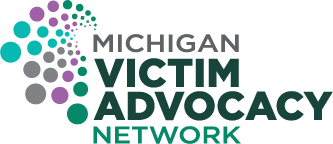Mental Health Always Matters
Compassion fatigue. Addiction. Depression. Anxiety. Many of us have been to those places or know loved ones, clients, and colleagues who have. Mental health is something we all experience, though it’s not always cared for or considered the way our physical health is. To some degree, it makes sense because the human brain is the most complex organ. It’s relatively straightforward to put a cast on a broken leg. It’s much harder to treat a brain.
However, this is the field we work in. We hear and bear witness to our clients’ experiences of being victims of crime, violence, and trauma. We offer support where and when we can, including mental health support because we know these experiences can exacerbate existing mental health concerns or start them. We also have to be cognizant of and care for our own mental health. Vicarious trauma, compassion fatigue, and burnout are common in our field.
That’s why, for this month, we created a compilation of stand-out resources and trainings that provide insight into this complex topic. Let’s learn more about supporting our own mental health and that of our clients. And please, as always, don’t hesitate to contact us if you’re still looking for something!

Bill Of Rights To Support The Mental Health Of Girls And Gender-expansive Youth Of Color In Schools
May 2022
Resource from the National Black Women’s Justice Institute and Schools for Girls of Color Learning Network (NBWJI)
Targeted at academic decision makers, this bill of rights lists five rights that should be recognized in school systems. They explain why recognition of these rights would support mental health and give actionable steps towards recognition of the rights, including:
- The right to mental health care
- The right to culturally relevant curricula
- The right to physical health
- The right to spaces to be ourselves
- The right to police-free schools

Intersection Of Trauma, Substance Use Disorder, And Mental Health
June 2021
Webinar from International Association of Forensic Nurses (IAFN)
This webinar takes a deep dive into the overlap between substance use and trauma, talks about cycles and the impact of each, including the impact on mental health. The speaker takes a refreshing, person-first approach in a way that is candid and informative.

Asian American And Pacific Islander LGBTQ Youth Face Unique Mental Health Challenges, Increased Racial & Ethnic Discrimination
April 2022
Article from the Trevor Project
This report summary highlights key findings from the study and show that AAPI youth who identify as LGBTQ are at increased risk of suicide. It also discusses protective factors unique to these youth and shows that mental health outcomes are unique across ethnic identities.

Assist Living for People with Mental Health Disorders
April 2022
Article from AssistedLiving.org
This accessible web-article focuses on mental health among seniors and posits assisted living as one option that may support seniors living with mental illness. It discusses common mental health and physical health concerns as well as pros and cons for various housing options for seniors living with mental illness.

Understanding The Nexus Of Sexual Violence And The Science Of Addiction
June 2021
Webinar from International Association of Forensic Nurses (IAFN)
This webinar highlights how addiction works as a disease, including why people could use drugs, risk and protective factors, and stages of addiction. The speaker discusses how addiction can increase vulnerability to victimization, which can then increase substance use.

Tips For Healthcare Professionals: COPING WITH STRESS AND COMPASSION FATIGUE
2020
Article from Substance Abuse and Mental Health Services Administration (SAMHSA)
While this is focused on healthcare professionals, much of it is relevant to those who advocate for victims and survivors as we also are at risk for compassion fatigue. It also provides signs and symptoms and discusses prevention techniques. These wellness strategies include maintenance of physical health, strengthening social connections, and activities to help advocates relax, process, and reconnect. This resource also provides tips for managers, advice on when to seek professional support, and additional resources.
Don’t have time for the read? Here’s an 8-minute video that overviews compassion fatigue for advocates and demonstrates 4-7-8 breathing.

Vicarious Trauma: Paper to Practice
Video resource from the Michigan Victim Advocacy Network (MiVAN)
Vicarious trauma is an inevitable challenge of being a crime victim advocate, but experiencing the negative effects of vicarious traumatization is treatable and preventable. Dr. Apryl Pooley reviews the latest vicarious trauma research and interviews Lisa Tieszen, co-founder of the organizational health agency Resilience Works, to help promote the well-being of all crime victim advocates.
Resources for Advocate Resilience
Resources for Advocate Resilience
Vicarious trauma is a risk factor for burnout, which is a process that occurs because of excessive or prolonged levels of job stress, leading to emotional exhaustion, depersonalization, and a reduced sense of personal accomplishment. The good news is that with proper support, advocates can experience compassion satisfaction and vicarious resilience, which can help mitigate the effects of burnout and compassion fatigue.
Check out MiVAN’s resource page on advocate resilience.

